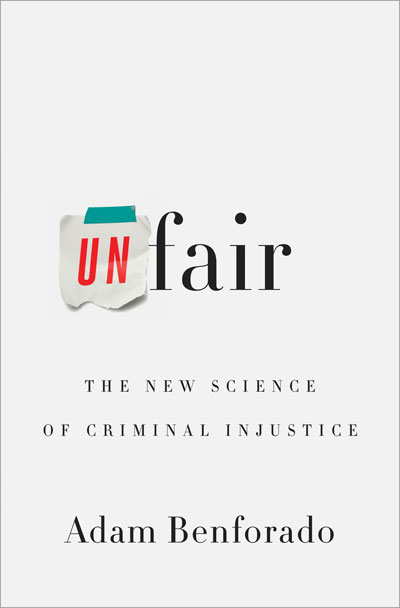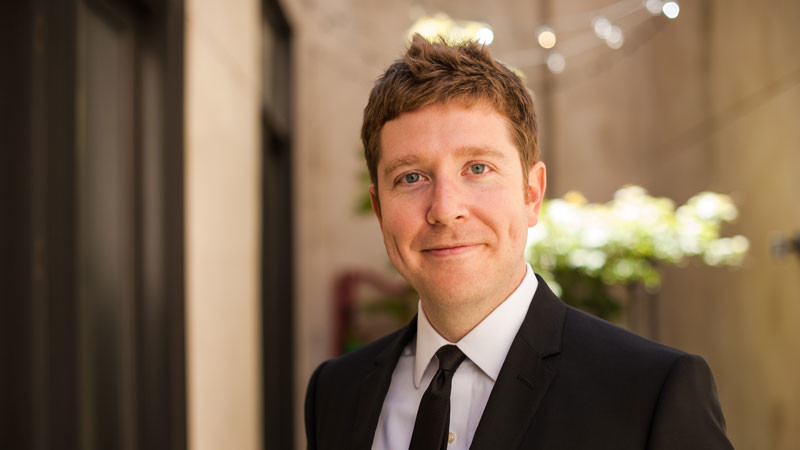Part of the power of the book stems from the fact that it grew out of Benforado’s personal journey.
“The seeds of the book were sewn in my experience as an idealistic and somewhat naïve law student,” Benforado tells me. “I went to law school, in large part, because I wanted to combat injustice. And what often mattered most seemed not to be the black-letter law, but the particular thinking and behavior of the legal decision-makers.”
[Listen to a full audio interview with Adam Benforado here.]
As part of his research, Benforado sought the voices of system skeptics, including Jon Hanson, now Director of the Project on Law and Mind Sciences at Harvard Law School.
“I began engaging the psychological literature and that’s what spurred me to one of the book’s core conclusions,” Benforado says. “The foundation of our legal system is fundamentally flawed because it’s built on an incorrect model of human behavior.”
The reception of these ideas in the legal community has been surprisingly warm.
“One day, I walked into my judge’s office and presented her with a big stack of psychological research,” Benforado says. “To her credit, she read through it all. With the book out a week, I’ve already heard from a couple of judges who are interested in developing continuing education for members of the bench.”
Those in policing seem equally ready to embrace his ideas. Benforado recently received an email from a police chief in Wisconsin who attached some scientific articles on the subject, asking to know his thoughts. “That gives me real hope for our future,” Benforado says. “Here is someone out there on the streets who is committed to evidence-based criminal justice.”
In Unfair, Benforado offers readers compelling stories and anecdotes that demonstrate his science. Sourcing the right narratives was challenging. “I was always trying to figure out how I could be factually accurate and true to the science, but still tell a story that would bring in the broad set of readers I wanted to reach,” Benforado says.
But the author had to temper his approach so as not to mislead his audience.
“I tried to be careful about using the stories as a means to provide a real-world context for the science, but to avoid falling into the trap of saying the reason that this particular real world event occurred was this particular psychological phenomenon,” Benforado said. “For the most part, the data just doesn’t allow us to do that.”
Benfordo thinks insights from psychology can help shed light on almost every tragic case that has emerged over the last several months, such as the shooting of David Baril in Baltimore.
“Two witnesses immediately came forward to say that they had seen a police officer shoot an unarmed man who was running away,” Benforado said of the case. “But surveillance footage revealed that the man had actually been chasing an officer, swinging a hammer. Neither witness was apparently trying to mislead anyone; they genuinely believed they saw something that did not happen. It’s hard to understand this without looking at the experimental evidence on false memory and how we fill in gaps in our recollection.”
In Unfair, Adam Benforado makes a compelling argument that if justice is at the moment impaired, it is not altogether impossible. We just need to understand how we work.
Adam Benforado appears at the Commonwealth Club on Wednesday, June 24 at 6pm, at 555 Post St., San Francisco; and at Book Passage on Thursday, June 25 at 7pm, 51 Tamal Vista Blvd, Corte Madera, CA 94925.
 In Unfair: The New Science of Criminal Injustice, and in a recent op-ed for The New York Times, Benforado methodically looks at each player in the system – the Victim, the Detective, the Suspect, the Lawyer, the Jury, the Eyewitness, the Expert, the Judge, the Public and the Prisoner – and then examines the many unconscious and subconscious forces that make justice unlikely, if not impossible.
In Unfair: The New Science of Criminal Injustice, and in a recent op-ed for The New York Times, Benforado methodically looks at each player in the system – the Victim, the Detective, the Suspect, the Lawyer, the Jury, the Eyewitness, the Expert, the Judge, the Public and the Prisoner – and then examines the many unconscious and subconscious forces that make justice unlikely, if not impossible.

